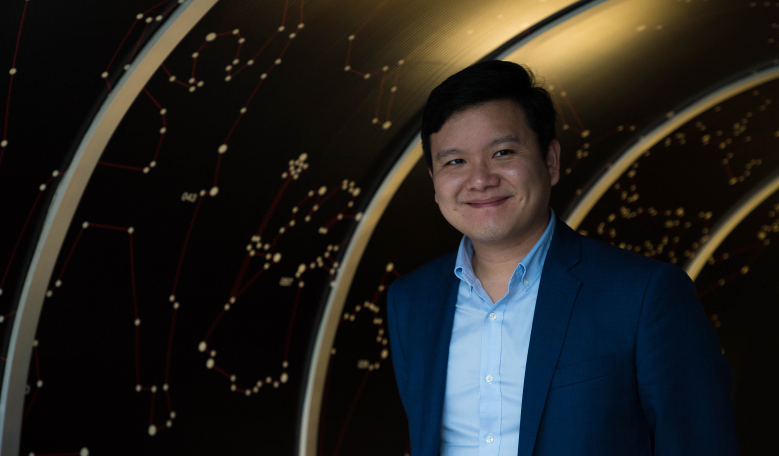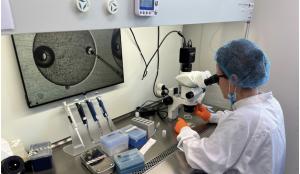James Yenbamroong, the founder and CEO of space technology company mu Space Corp, revealed this week his bold plan to establish a venture unit in 2019 in a move to go international and to create opportunities other than satellite communications.
Yenbamroong, a satellite and space tech entrepreneur from Thailand, said that the planned venture unit will be set up next year in partnership with private investors to provide funds to startups and medium-sized companies working in new space and deep tech sectors.
“We’ll generate $100 million as initial fund,” said the 34-year old techpreneur, adding that more funds will be raised, if needed, to support promising startups and companies.
“We’re now scouting for innovative startups and early-stage businesses with a potential to disrupt the current market by developing products or services that are new to the world and can help improve the lives of people. These may include, for example, artificial intelligence, robotics, space research and deep space exploration.”
The venture unit will be based outside of Thailand, informed Yenbamroong. “It can be in any country that can offer a conducive business environment for the venture unit to grow and operate. But for now, the nearest prospect is Singapore.”
Singapore is currently home to over a hundred venture units. The country’s competitive business ecosystem, digital infrastructures, pro-business local policies and sufficient tech talent pool have attracted many venture units to make Singapore as their central hub for operations.
The establishment of Yenbamroong’s planned venture unit comes at a good timing when investment in space-related activities is skyrocketing.
According to a report from investment firm Space Angels, about US$ 3.9 billion of private funds worldwide have been invested in 2017 in commercial space companies. Of that investment, venture capital fund accounted for 40% or US$1.56 billion.
The report also found that over 120 venture capital firms made investments in the space industry last year, a big jump from about 80 in 2016.
“Entrepreneurial space age shows no sign of slowing down. 2017 was a positive year for the space industry, and the momentum continues to 2018, with nearly 1 billion US dollars in private funds invested in this year’s first quarter alone,” commented Yenbamroong.
The recent space technology demonstrations and future lunar missions make setting up a venture unit a timely decision, according to Yenbamroong.
“We’re extremely optimistic about the sustained growth of the space industry. Without a doubt, the market potential for space-related activities is going up and there’s no stopping right now. We’ll definitely see the rise of new startups and businesses in the future focusing on commercial space flights, space tourism and in-space manufacturing.”
He added, “The moon is our next explorable colony beyond Earth. So we set a goal to be there in the next 10 years, there along with 100 humans.”
Founded in Thailand in 2017, mu Space develops satellite communication technologies to accelerate the adoption of Internet of Things devices and smart cities. It plans to launch its own satellite in 2020 using Blue Origin’s New Glenn space vehicle, and to lead space technology development and encourage new space investments in Asia-Pacific.











